Kunbo Ding
A Simple and Effective Method to Improve Zero-Shot Cross-Lingual Transfer Learning
Oct 18, 2022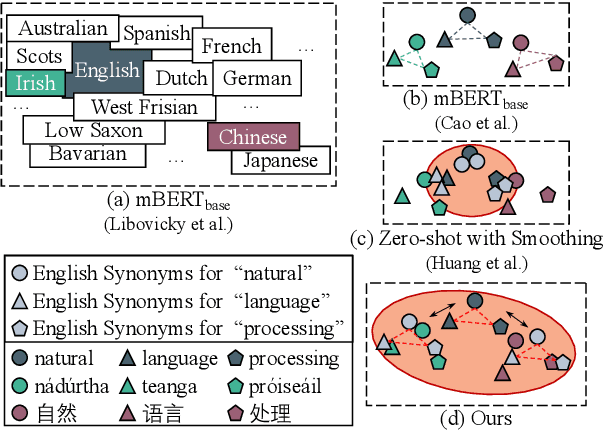

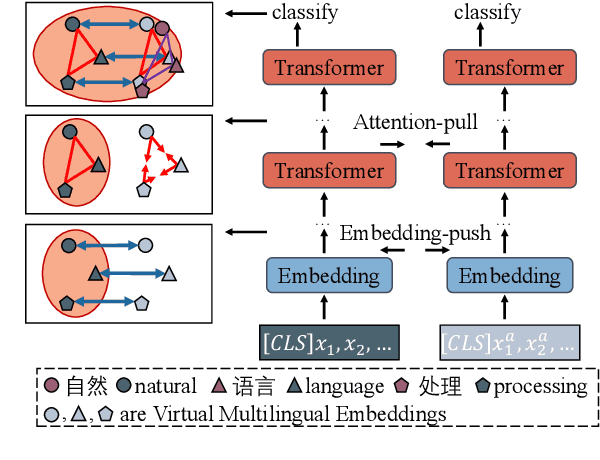
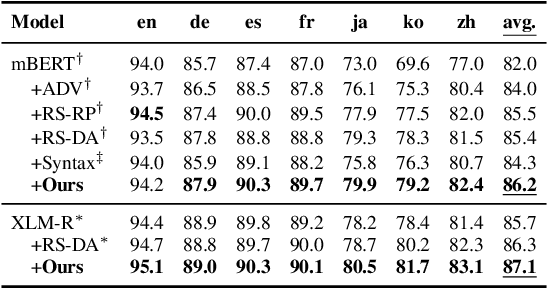
Abstract:Existing zero-shot cross-lingual transfer methods rely on parallel corpora or bilingual dictionaries, which are expensive and impractical for low-resource languages. To disengage from these dependencies, researchers have explored training multilingual models on English-only resources and transferring them to low-resource languages. However, its effect is limited by the gap between embedding clusters of different languages. To address this issue, we propose Embedding-Push, Attention-Pull, and Robust targets to transfer English embeddings to virtual multilingual embeddings without semantic loss, thereby improving cross-lingual transferability. Experimental results on mBERT and XLM-R demonstrate that our method significantly outperforms previous works on the zero-shot cross-lingual text classification task and can obtain a better multilingual alignment.
Multi-stage Distillation Framework for Cross-Lingual Semantic Similarity Matching
Sep 13, 2022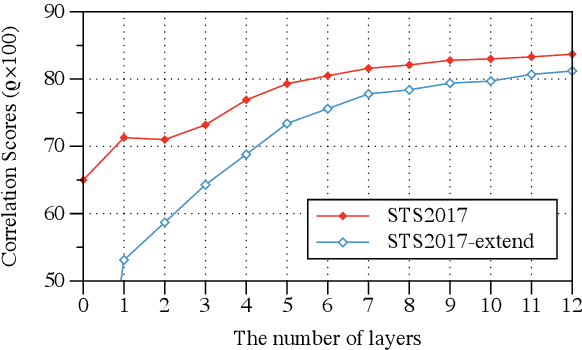
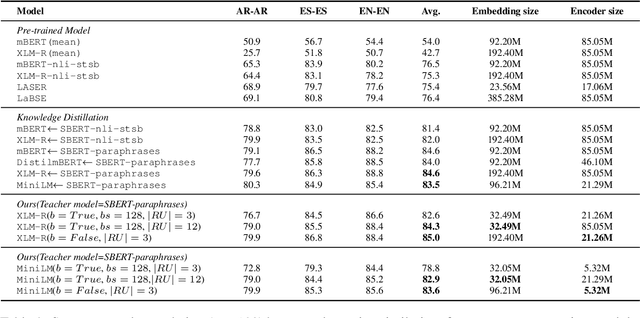
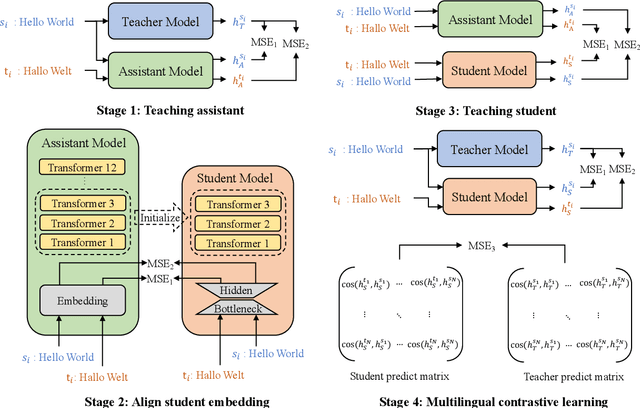
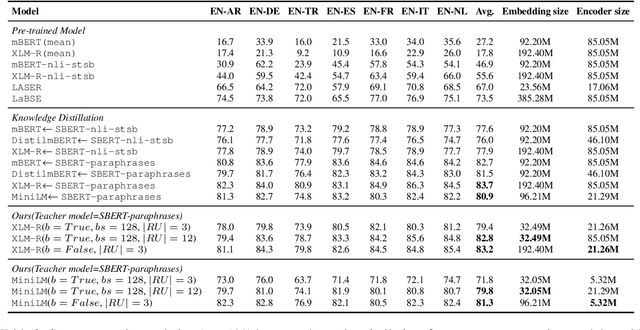
Abstract:Previous studies have proved that cross-lingual knowledge distillation can significantly improve the performance of pre-trained models for cross-lingual similarity matching tasks. However, the student model needs to be large in this operation. Otherwise, its performance will drop sharply, thus making it impractical to be deployed to memory-limited devices. To address this issue, we delve into cross-lingual knowledge distillation and propose a multi-stage distillation framework for constructing a small-size but high-performance cross-lingual model. In our framework, contrastive learning, bottleneck, and parameter recurrent strategies are combined to prevent performance from being compromised during the compression process. The experimental results demonstrate that our method can compress the size of XLM-R and MiniLM by more than 50\%, while the performance is only reduced by about 1%.
 Add to Chrome
Add to Chrome Add to Firefox
Add to Firefox Add to Edge
Add to Edge